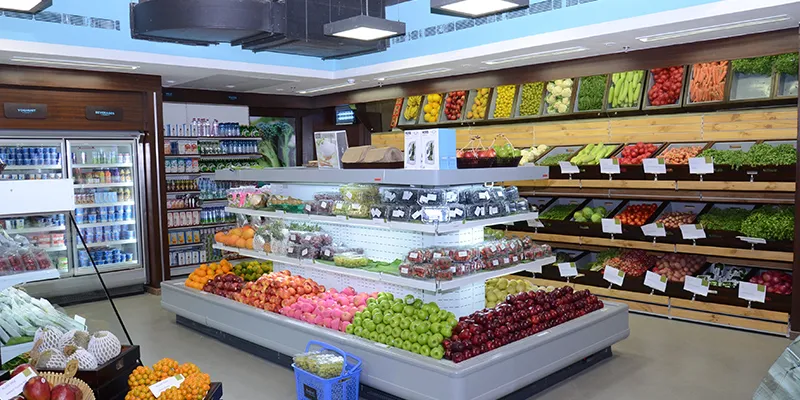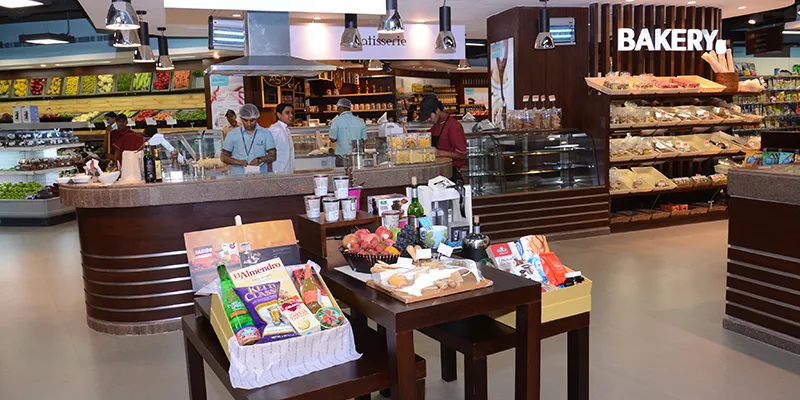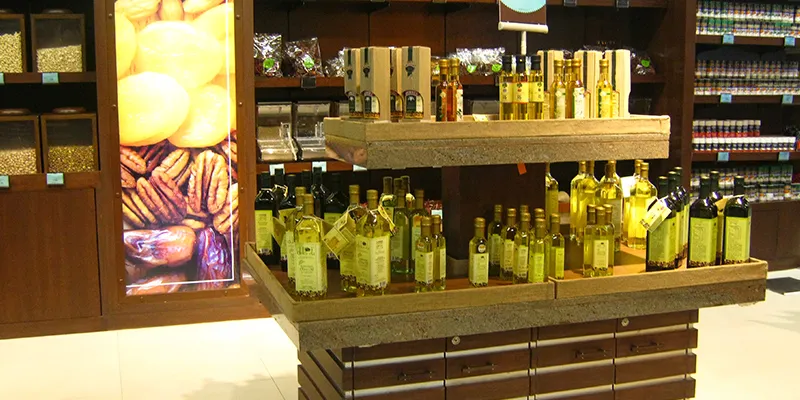Foodhall carries Biyani's retail legacy forward but through luxury food
Big Bazaar, the flagship company of Future Group’s retail arm Future Retail, might have been built to replicate the typically chaotic local bazaar experience in India, but with Foodhall, the retail giant is headed in the exact opposite direction.

Foodhall, which seeks to address a noticeable gap in the Indian retail market, has been developed as a premium lifestyle food superstore to cater to the affluent global Indian customer who appreciates gourmet food.
Avni Biyani, Future Group Founder Kishore Biyani's younger daughter and Concept Head of Foodhall, says,
"Before launching Foodhall, we noticed a gap in the retail industry for gourmet food. There was an absence of brands that sold premium and exotic food. Foodhall identified the gap in the food market and attempted at closing it with an exhaustive range of offerings curated specially for the food connoisseur."

Future Retail, which is present across 240 cities in India and occupies over 11 million sq. ft of retail space, is focused on the Indian consumption story through multiple retail formats.
While breaking new ground, Foodhall is following in Big Bazaar’s footsteps in yet again taking the experience route to success. Except this time, given the premium categorisation of the product and customer, the experience had to be completely different from the chaos of an Indian bazaar. Says Avni,
"Our aim is to inform and educate our customers about newer things. Familiarising the customer with the product by allowing them to touch, smell and feel it makes them more comfortable with it."
"We have always tried to bring the best of international and local ingredients to our customers. Since most of these ingredients are unique and unheard of, we always come up with ways to educate the customer about the ingredient and ways of cooking it," she adds.
The retail chain regularly hosts masterclasses in all its stores to engage with its customers and educate them about a specific cuisine or ingredient. These masterclasses are hosted by food experts who demonstrate recipes to customers.
Additionally, there are weekly tasting sessions. From Coffee Mornings on Sundays to Nutty Thursdays and Cheesemonger’s Saturdays, Foodhall regularly hosts tasting sessions at its stores to familiarise customers with various products. While experience is the main pillar of customer engagement, presentation is one of the key ingredients to bolster the shopping experience.

Says Avni: "Our visual merchandising team plays a vital role in this regard. We go the extra mile by ensuring that the product is displayed beautifully with relevant information guides, recipe cards and how-to manuals placed around it."
Educating the affluent customer about the offerings and making the visit a true shopping experience is the key to securing the relationship between Foodhall and its clients, she feels. However, she says that understanding one's customers is important before educating them.
The education isn’t restricted to a one-time touch point at the seven Foodhall outlets across Mumbai, Delhi, NCR and Bangalore. It extends to content marketing on social media and Foodhall's website where in addition to recipes, videos and GIFs, there are images of selected non-local products available at the store. This approach promotes genuine two-way engagement as customers respond with their own queries on exotic products like yuzu, miso, artichokes and gochujang that aren’t otherwise available.

This daily two-way engagement gives Foodhall a perspective on gaps in the market. Armed with this understanding, it has created several in-house specialty brands for niche products ranging from handpicked collection of teas, spices, nuts, cakes, cheese, meats to other exotic foods.
No experience is complete without the human touch, which is why employees undergo specialised training from industry experts to sharpen their skills and enhance the levels of personalised service.
The exotic foods market is still at its infancy in a country where about 22 percent of the population is still below the poverty line. Still, given India’s demographic dividend and the increasing urban affluence, the growth prospects look bright. Avni, who grew up in malls watching her father build his business, may be perfectly positioned to make the most of this opportunity with Foodhall. She says,
"Retail is a business where you can learn the most from the shop floor. Having spent a lot of time in the stores, I’ve worked there as well as observed customers. It helps with an understanding of their needs and providing appropriate solutions for them. Most often, it also helps you in reading the needs of the customers even before they identify them. This is what enables you to stay ahead of the curve."
With very few online players in this segment and one major player in Godrej’s Natures Basket as competition, Foodhall has a huge opportunity to tap.







